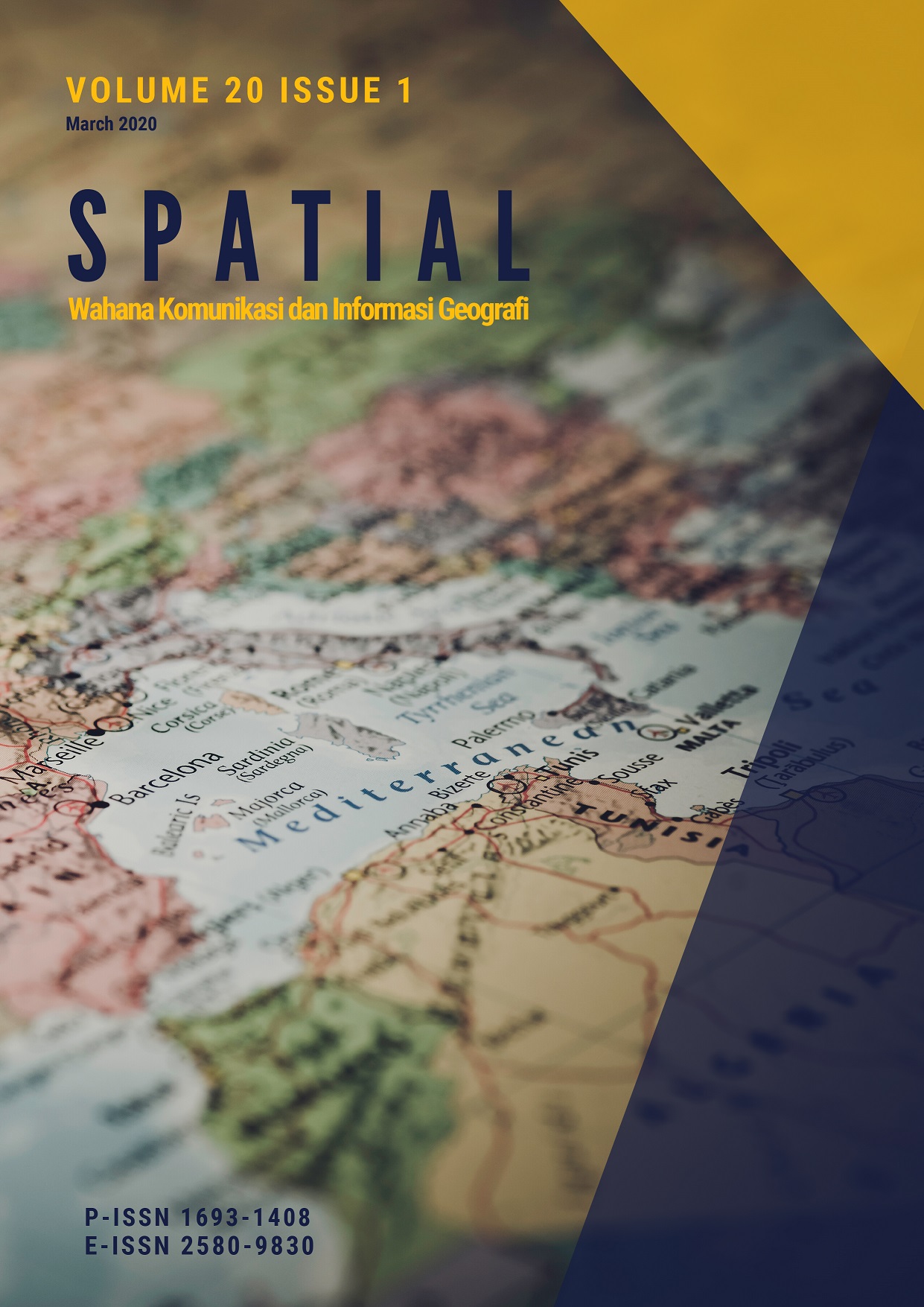Maritime Preference of Students From Schools In Ciliwung Watershed
Keywords:
preferensi, , maritime, geographyAbstract
This research aims to study maritime preference of students from schools in Ciliwung watershed. Maritime preference in a community pictures how a country could be depicted as a maritime country. The population in this research are 12th grader students that have been taught about Indonesia’s maritime potential in geography class from 29 schools located in Ciliwung watershed. The data was obtained through survey using questionnaire. The result shows that overall, the maritime preference from students have a weak tendencies in all aspects, including foods, fashion, travelling, daily behaviour, and professions/preference. Students whose schools located in the upstream part of the watershed have lower maritime preference compared to students from the middle and downstream area, even though they also have learned about maritime topic in school. The individual and family background affected their maritime preference and it could be said that the people who lived in the hinterland have a lesser preference of sea than the people who lived in a coastal area.
Keywords: preferensi, maritime , geography
Downloads
Published
How to Cite
Issue
Section
License
An author who publishes in the journal SPATIAL Wahana Komunikasi dan Informasi Geografi agrees to the following terms:
Author retains the copyright and grants the journal the right of first publication of the work simultaneously licensed under the Creative Commons Attribution 4.0 License that allows others to share the work with an acknowledgement of the work's authorship and initial publication in this journal
Author is able to enter into separate, additional contractual arrangements for the non-exclusive distribution of the journal's published version of the work (e.g., post it to an institutional repository or publish it in a book) with the acknowledgement of its initial publication in this journal.
Author is permitted and encouraged to post his/her work online (e.g., in institutional repositories or on their website) prior to and during the submission process, as it can lead to productive exchanges, as well as earlier and greater citation of the published work (See The Effect of Open Access).
This work is licensed under a https://creativecommons.org/licenses/by/4.0/









